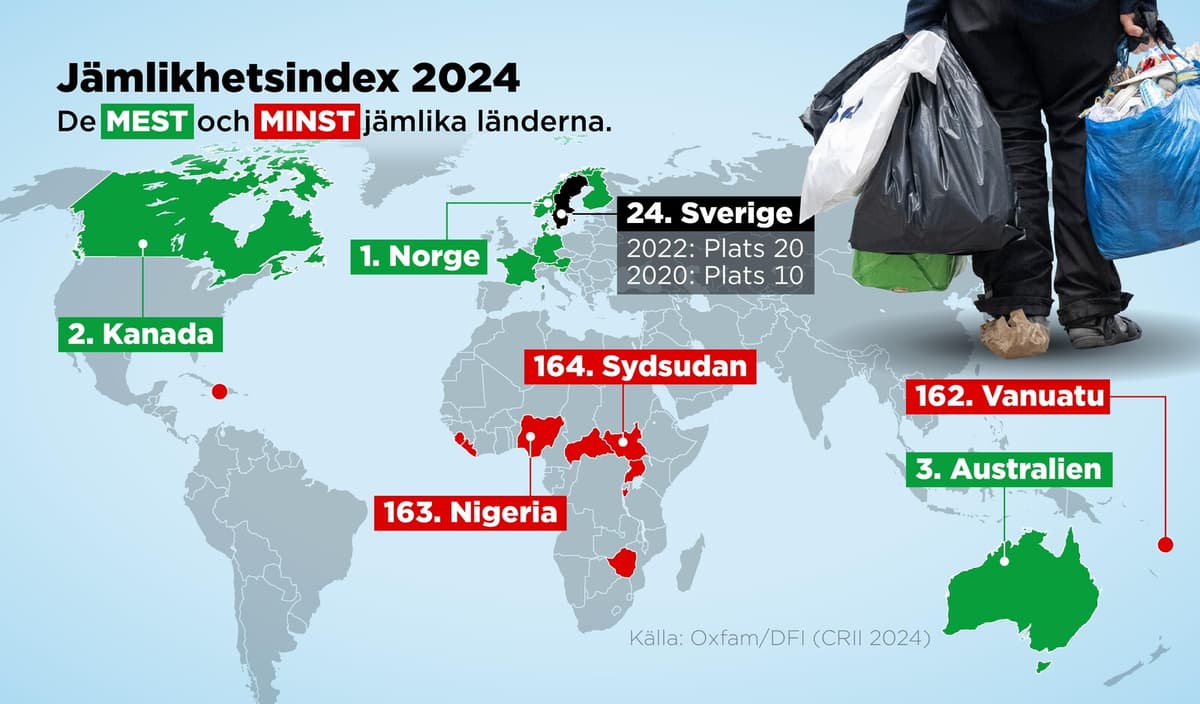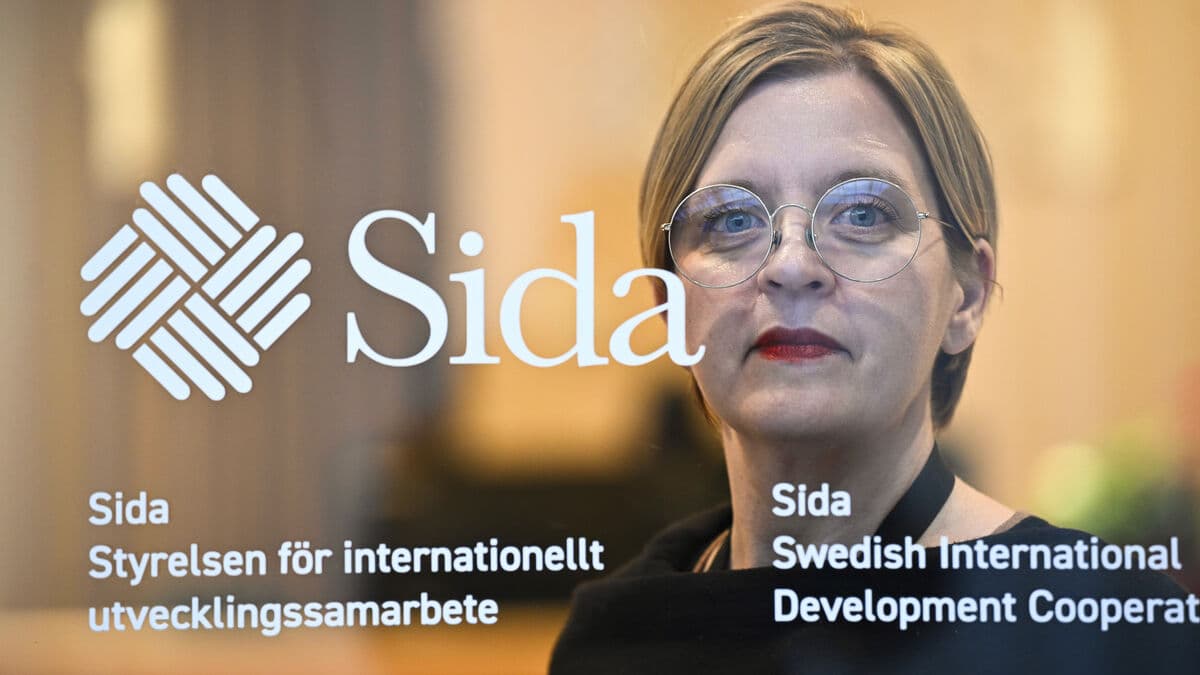The Index, Commitment to Reducing Inequality Index (CRII), is produced by Oxfam in collaboration with Development Finance International (DFI).
CRII ranks 164 countries in the world based on political decisions and their effects on economic equality. The index is compiled every other year, and in this year's edition, Sweden ranks 24th and is still the lowest ranked in the Nordic countries.
In a press release, Oxfam writes that the reason for Sweden's decline in the index is changes in tax policy.
According to the organization, this includes, among other things, reduced marginal tax rates and the previously abolished inheritance tax and wealth tax.
"The current tax policy benefits the very richest, while those living in poverty have to bear the greatest burden," says Suzanne Standfast, Secretary General of Oxfam Sweden, in the press release.
The decreasing economic equality in Sweden follows a global trend, notes Oxfam.
The highest ranked country in this year's index is Norway, followed by Canada and Australia. Sweden lands in 24th place. At the bottom of the index is South Sudan, behind Nigeria and Vanuatu.
Oxfam is a politically independent, international aid organization. The organization aims to combat "climate inequality, economic inequality, and injustices that cause poverty and oppression."
The report analyzes measures in three areas that, according to Oxfam, are crucial for combating economic inequality: welfare, taxes, and workers' rights.






